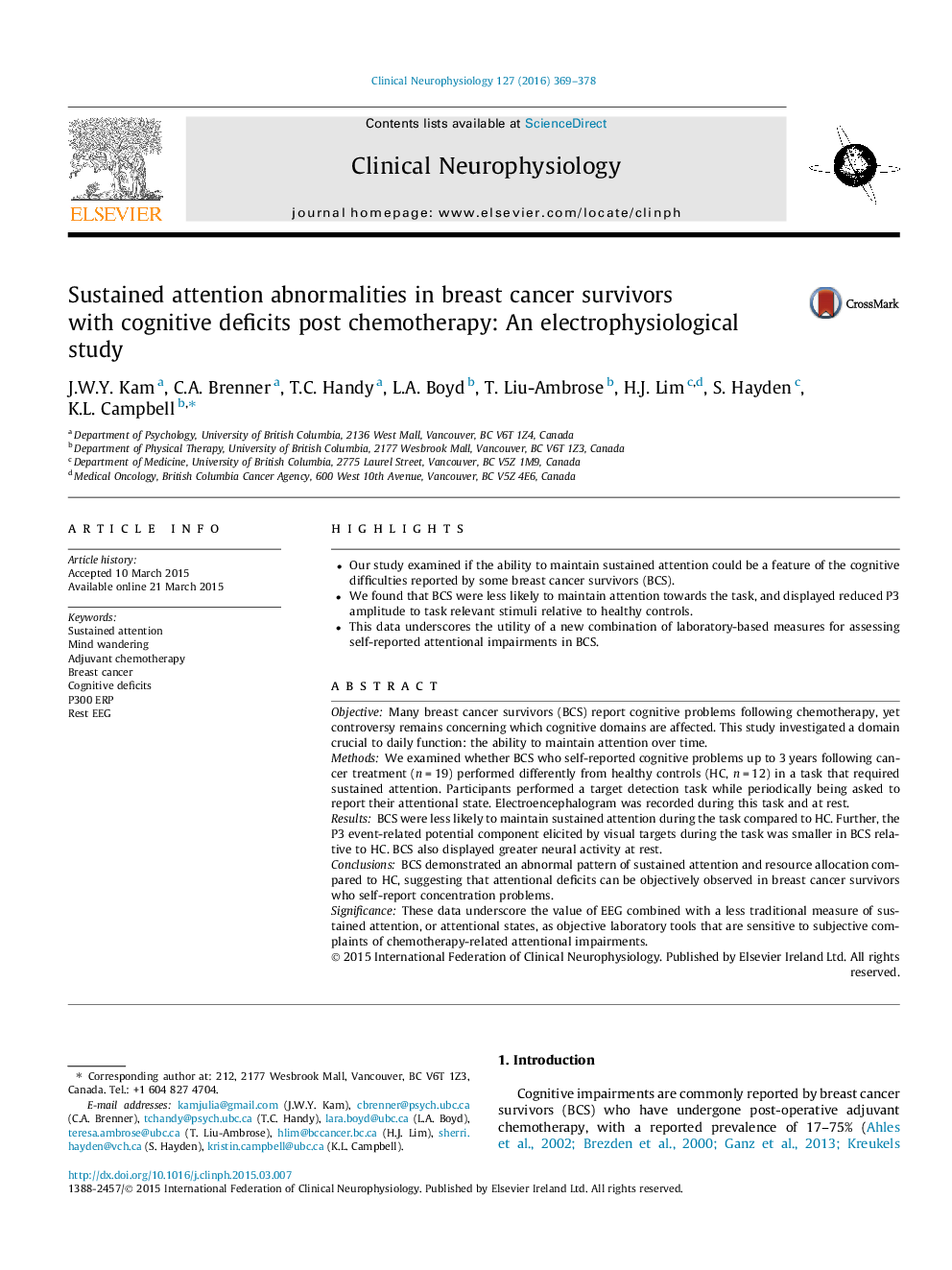| Article ID | Journal | Published Year | Pages | File Type |
|---|---|---|---|---|
| 6007888 | Clinical Neurophysiology | 2016 | 10 Pages |
â¢Our study examined if the ability to maintain sustained attention could be a feature of the cognitive difficulties reported by some breast cancer survivors (BCS).â¢We found that BCS were less likely to maintain attention towards the task, and displayed reduced P3 amplitude to task relevant stimuli relative to healthy controls.â¢This data underscores the utility of a new combination of laboratory-based measures for assessing self-reported attentional impairments in BCS.
ObjectiveMany breast cancer survivors (BCS) report cognitive problems following chemotherapy, yet controversy remains concerning which cognitive domains are affected. This study investigated a domain crucial to daily function: the ability to maintain attention over time.MethodsWe examined whether BCS who self-reported cognitive problems up to 3 years following cancer treatment (n = 19) performed differently from healthy controls (HC, n = 12) in a task that required sustained attention. Participants performed a target detection task while periodically being asked to report their attentional state. Electroencephalogram was recorded during this task and at rest.ResultsBCS were less likely to maintain sustained attention during the task compared to HC. Further, the P3 event-related potential component elicited by visual targets during the task was smaller in BCS relative to HC. BCS also displayed greater neural activity at rest.ConclusionsBCS demonstrated an abnormal pattern of sustained attention and resource allocation compared to HC, suggesting that attentional deficits can be objectively observed in breast cancer survivors who self-report concentration problems.SignificanceThese data underscore the value of EEG combined with a less traditional measure of sustained attention, or attentional states, as objective laboratory tools that are sensitive to subjective complaints of chemotherapy-related attentional impairments.
